How to start an animation company with a unique production pipeline with higher productivity and more opportunities for creativity? Sergey Demchev, CEO Magic Factory, shares his experience. 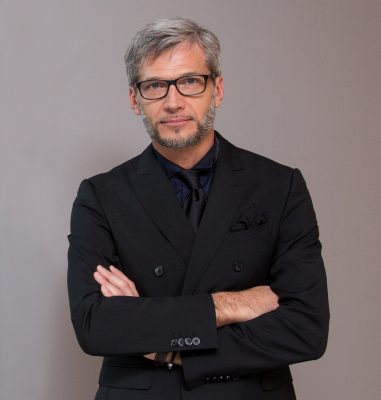 In the interview, you will find out how to carry out technological and conceptual animation projects and run them in parallel with Cerebro.
In the interview, you will find out how to carry out technological and conceptual animation projects and run them in parallel with Cerebro.
Sergei, you have an extensive professional experience: you ran a contemporary art center, started a design company, and taught at a business school. Your education is also related to art. Please tell us how it all began. How did you realize that you were attracted to art?
When I was little, my parents had a pretty decent collection of albums on painting and sculpture. Unfortunately, back then the selection of literature and video materials was limited, so we had to do with what we could find. As a kid, I would come to the bookshelves where the albums stood, flip through the pages, and study the pictures. This is how I got interested in art.
Do you like art as a user, or do you also like to create things yourself?
I always say that I’m an administrator. My goal is to provide the most comfortable conditions for the people who create art. But you need good taste and intuition to administer art processes. So I am an administrator with a certain level of taste and intuition. Of course, I often have to take part in the creative process, so I guess you could also say that I create things, but I don’t want to label myself as someone who does it professionally.
So you help artistic people create things. Do you feel involved in the process? Are you proud of your efforts?
Of course. My projects usually involve very respectable people and professionals, but I am the one who initiates them. I create the general concepts, so you could call them mine. But that’s the work of a producer… I decide what artists, screenwriters, composers, and technical specialists to invite and who to work with. Sometimes I get ideas for a new project when I meet someone or see someone’s work. So yes, I feel fully involved in the process.
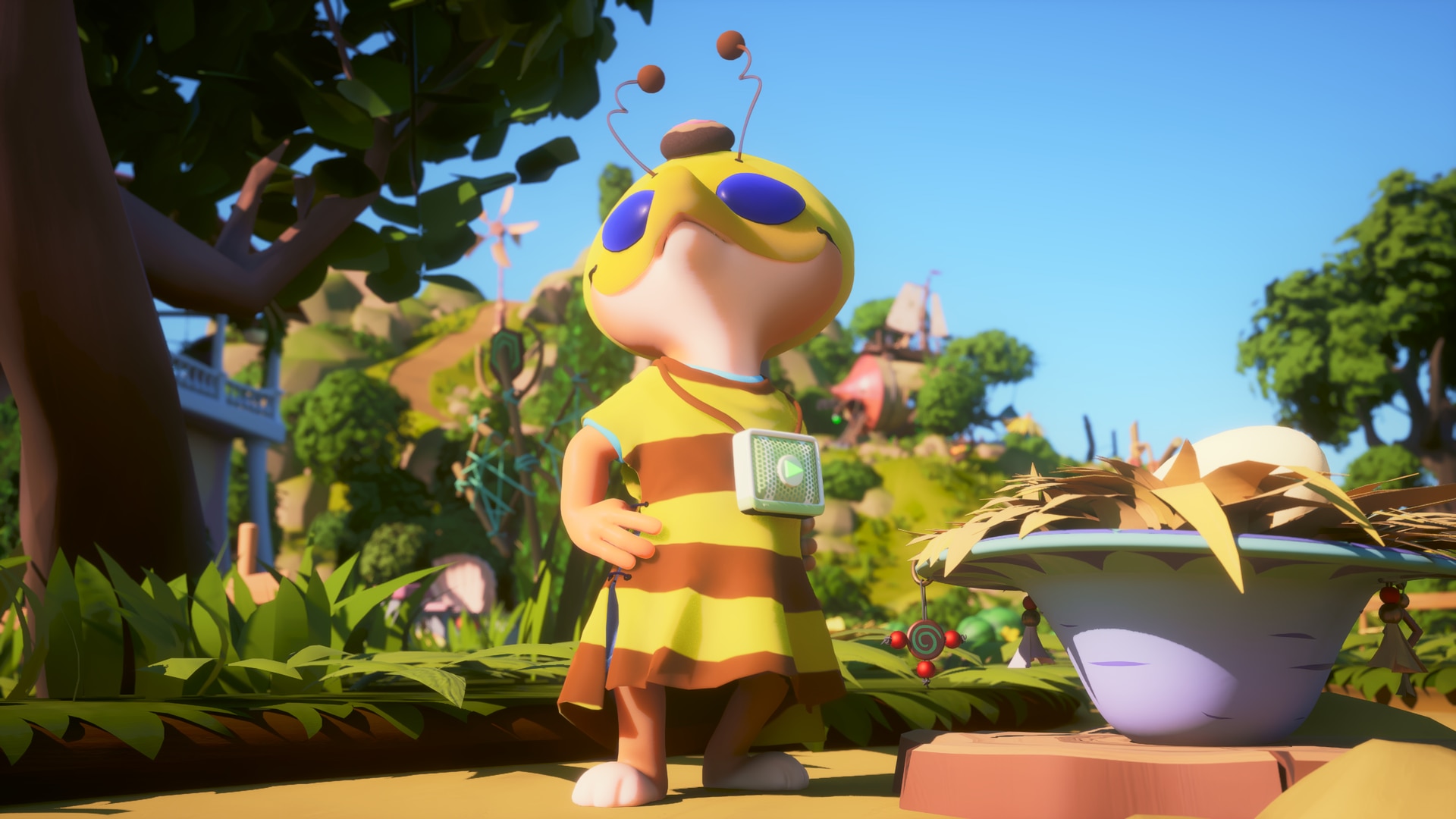
All of your projects, including Magic Factory, feature unusual solutions that utilize modern technology. Are you drawn to it, or do you just feel that it is something important that needs to be done?
I can’t say that I’m drawn to digital technology. When it comes to creating an art object or implementing an art project, it is a matter of tools: some people use oil paints and pastels, some make sculptures from marble, and some prefer plasticine. I use digital technology for my projects.
Digital technologies have become very popular. Did you know it would happen back when they weren’t so widespread?
That’s what sets me apart. The MARS center has been around for 30 years, half of which we have been specializing in digital formats. At some point we positioned ourselves as a center working with and developing digital technologies.
I saw it as a tool and a genre and believed in it. And indeed, when I was just starting out, most people didn’t even understand what I was talking about.
Why did I decide to go in that direction? Because we are a digital generation. We can’t live without gadgets. If you take our phones away from us, we feel sick and nervous. People don’t like reading books these days: it takes longer and requires more effort than we’re used to in our fast-paced lives. You could say that the digital format is the language of our generation, and I speak that language. That’s all there is to it.
Do you play anything or watch VR? Do you have time for that?
I watch a lot of things, it’s part of my job. If you want to create something new, you need to know what you already have around you. You need to know who is doing what to avoid copycatting and plagiarism.
The technology is developing very quickly. What we see as extra special today will seem so mundane tomorrow that no one will pay any attention to it. So you must learn to identify the existing and promising trends and use them to stir interest in others.
When we started doing that at MARS, everyone was talking about the multimedia genre in art and education, but no one really understood anything. We helped formulate, demonstrate, and develop those areas. We worked with a lot of Western artists and specialists and created the right conditions for Russian artists, and the genre took off. We started seeing more Russian artists and technical specialists. After all, it’s not enough to invent and develop digital technologies, you also need to know how to use them. Production is a complex process that involves a huge team of professionals: from coming up with an idea to releasing the final product and bringing it to the viewers. This genre involves a long production process, which makes my role as an administrator crucial.
You have extensive experience in business and management, but production is something completely different. Was there anything you didn’t expect?
My projects have one thing in common: they are all unique. And by unique I mean not the genius of my ideas, but the technical approach to implementing them.
If you take any of my projects and look at the production process, you’ll see that they all have been made using the top trends of that time. For example, VR / AR. When many people have barely heard of them, we were already releasing projects that involved an extensive use of those technologies. Such projects are always a risk, but you never know what you can do till you try.
It’s the same with animation: it all started with a small group of like-minded individuals and with the idea of a fundamentally different way to produce animated content. I stick to my style and try to solve standard issues in unusual technological and conceptual ways. In animation, my colleagues and I found a non-standard way to approach projects, and that is what got me interested. I always do only the things I’m interested in.
But when I say it like that, it sounds like I just woke up and decided to start making animated movies, when we actually got to what we are doing now through projects related to virtual reality. We had an extensive background in that area. We already had a lot of experience working with game engines, animation systems, and other unconventional approaches. My business partner had long been wanting to create animated content in game engines, so we decided to found a company.
So the technological novelties didn’t shock you?
No. We tried to develop the possibilities we saw while working on our VR projects. The main principle of the animation company we created was to abandon the traditional methods of production and build a special and unique production pipeline with higher productivity and more opportunities for creativity. And so we did.
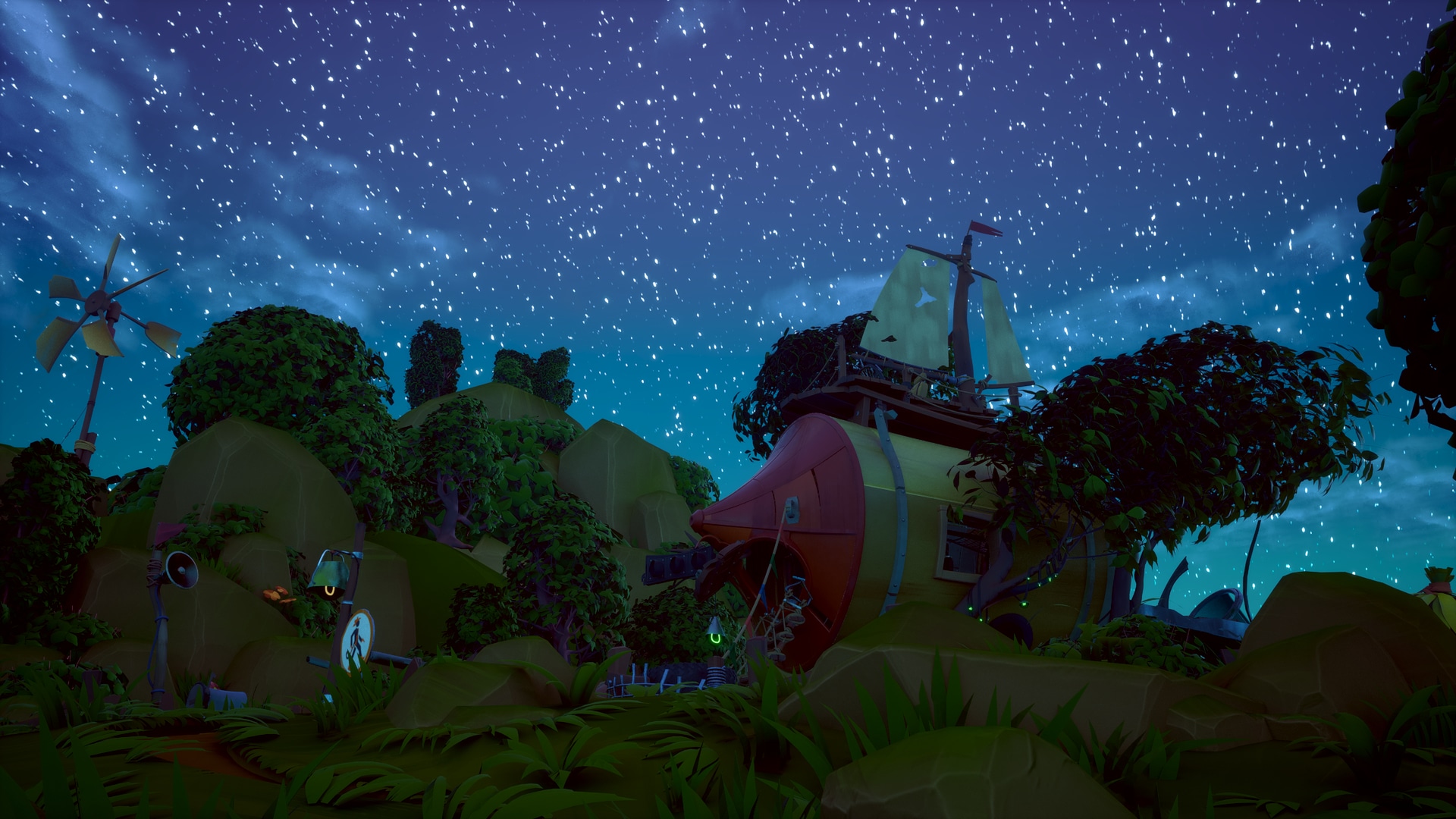
As a leader, do you immerse yourself deeply into all the work processes or do you prefer to delegate tasks?
Any administrator must be able to delegate tasks to other people. If you don’t know how to do this, you stop being a leader and become an executant. The more you try to fill in for others, the more you efficiency drops.
So of course I try to lead and not do things with my own hands, but since all our projects are special, I still have to immerse myself deeply in them. This doesn’t mean that I have studied programming, Unreal, animation programs, etc. I am not an expert in any of those areas, but I have a general idea of how they work, the basic principles of programs and engines. It’s like with a car: I know what I can get out of it given its weight and engine power. I don’t need to know how the engine works, I need only the basic parameters.
I am a jack of all trades who knows the general capabilities of more than a dozen professions. And I don’t just know them, I also try to manipulate them. But I still hire specialists to bring competencies to our company.
Do you select the specialists yourself, as you say on your website, or are these just fancy words?
I do. I interview each and every one of them. I know everyone in person: who they are, what they do, and why we hire them. We have more than a hundred people working in our company right now. It’s all about the people.
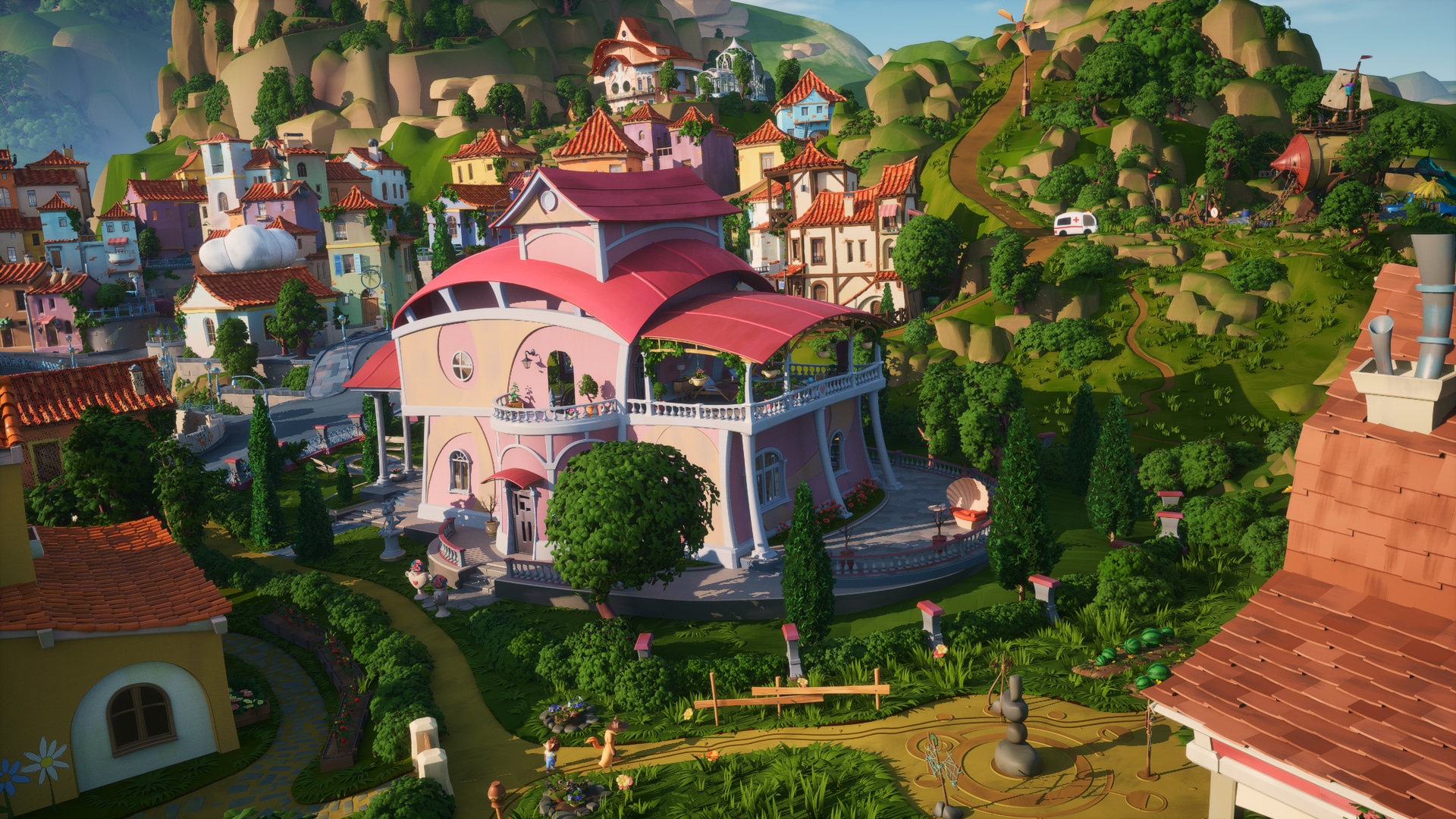
Could you describe your routine day at the Magic Factory studio?
We don’t have routine days, because we love what we do. We start with daily briefings and then set off to do our tasks. I have a bunch of different tasks related to administration: accounting, lawyers, contracts, future planning: in which direction we want to go, what we want to do, what projects we’ll be doing in a year or a year and a half.
I sometimes do everything, including toilets. For example, today someone urged everyone to use the toilets correctly in one of the chats. Banal, but still important. This is one of the many things I do.
You opened your studio in 2019, shortly before the pandemic began. How did you cope under those conditions?
The harder it is, the better. The more twists and turns our life has, the richer and brighter it will be. I probably shouldn’t talk that way about a pandemic, but it has been a rather unexpected and serious adventure for all of us. During the pandemic year, we released a whole season of our animated series and developed and pre-produced three feature films, two of which got the support of the Cinema Fund. We also created the Soyuzmultpark multimedia park at VDNH from scratch in 2020, and the list goes on.
Did you work remotely?
From March to May, almost all the work was done remotely. We followed all of Rospotrebnadzor’s (Federal Service for Surveillance on Consumer Rights Protection and Human Wellbeing) recommendations. But we haven’t worked from home a single day since the restrictions were lifted, because the projects we do require our full-time presence.
It is one thing when you’ve been working with a familiar technology for five to ten years and have it all dialed-in. But in our case, the work is non-stop: you have to constantly monitor things and look for solutions. I also prefer to talk to people eye to eye, to see live reactions. Homo sapiens is a social creature, not a digital bot. Verbal communication is very important for us in terms of sensations, which is why live communication is so beneficial.
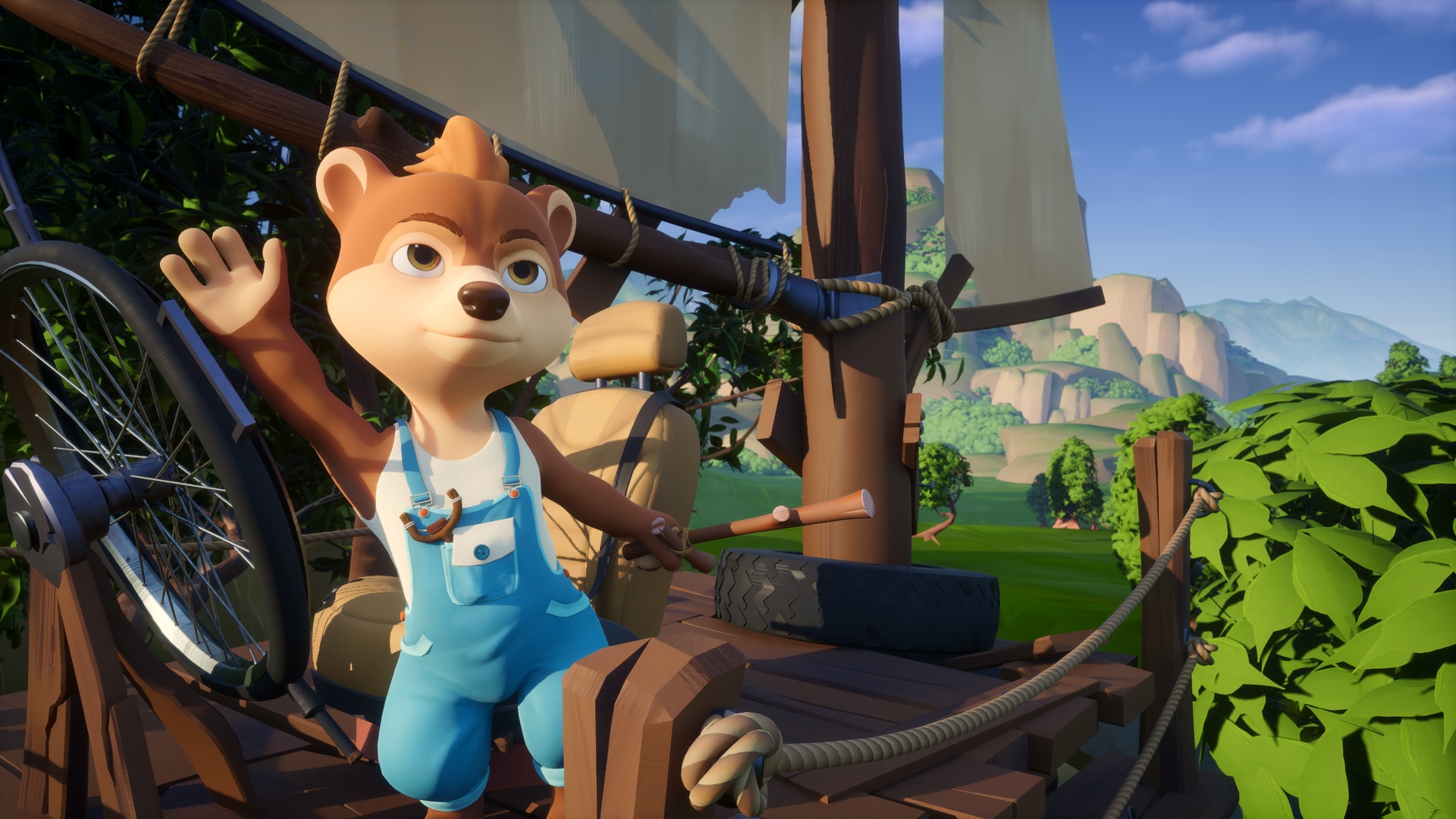
Was it difficult to find the people willing to work for you when you were just starting out?
Of course. You need top-level specialists for such projects. There are ordinary musicians, and there are musicians who can improvise and who have mastered their instruments. Similarly, there are good specialists who work well under familiar schemes, but if you need to improvise, you need someone extremely skilled for that. Such people are hard to come by, and they already have certain well-earned demands.
To get a specialist like that to work for you, you need to make them believe you. When you’re sitting on a chair alone with nothing around you and a zero background in that area, it is very difficult to convince top-class professionals that they need to give up everything and come to you. It is hard to convince them that we won’t disband in a month or go bankrupt, and that it is not a stupid idea. Assembling a strong team that believes in you is not at all easy. But all my projects are like that, so I’m used to it. That’s why I need to talk to everyone personally.
What support did you get from Soyuzmultfilm? What is your relationship like?
Soyuzmultfilm wanted me to create Soyuzmultpark. Their choice was more than adequate, because I live and breathe digital technology. Entertainment, edutainment, art, and all things digital — it’s all me. I don’t mean to boast, but you won’t find a better specialist in Russia, that’s a fact.
So Soyuzmultfilm came to the right place, and our cooperation started with the Soyuzmultpark multimedia park project. Later, when we learned more about what Soyuzmultfilm was doing, their plans, projects, and situation, it gave us new ideas and thoughts.
Trends also played a role. As I’ve said, I monitor everything that happens in the digital sector, and that also applies to animation, because we’ve worked with it in VR. The Lion King and Fincher’s Love, Death & Robots have clearly shown how fundamentally different animation projects can be.
I can’t say that it was my idea to start making animated movies using game engines. The credit goes to more experienced guys. But in Russia, no one is doing something like that yet. And not so many people in the world are doing something like that. So we got the idea to create our company after studying the global trends and the activities of the Soyuzmultfilm studio.
Of course, catching up with the global 2D animation industry would be very hard for us. How can we compete with them? We may have lots of talented people in our country, but that is not enough for production. We need an industrial atmosphere, educational institutions, and a large number of companies working in that area. Unfortunately, there is not enough of that. We don’t have that many animation studios and projects, and, consequently, we lack the experience and specialists.
And what about specialists?
It goes without saying that one thing causes the other, so we don’t have that many options. Now the stars have aligned and we have all decided to take a risk. I really want to thank Soyuzmultfilm for that. Although I think that the risk is justified. I feel like we use the new technologies to catch up with those who seemed to reach.
Soyuzmultfilm heard me. They have created a technology park with several companies as participants. We’ve received equipment and procurement preferences. We could not afford to buy all those expensive toys and hire more people on our own, but now we have been given these opportunities. We rent the spaces in which we work, but it’s still much easier, and we work with Soyuzmultfilm as partners. They help us, and we help them. This is how our cooperation is born.
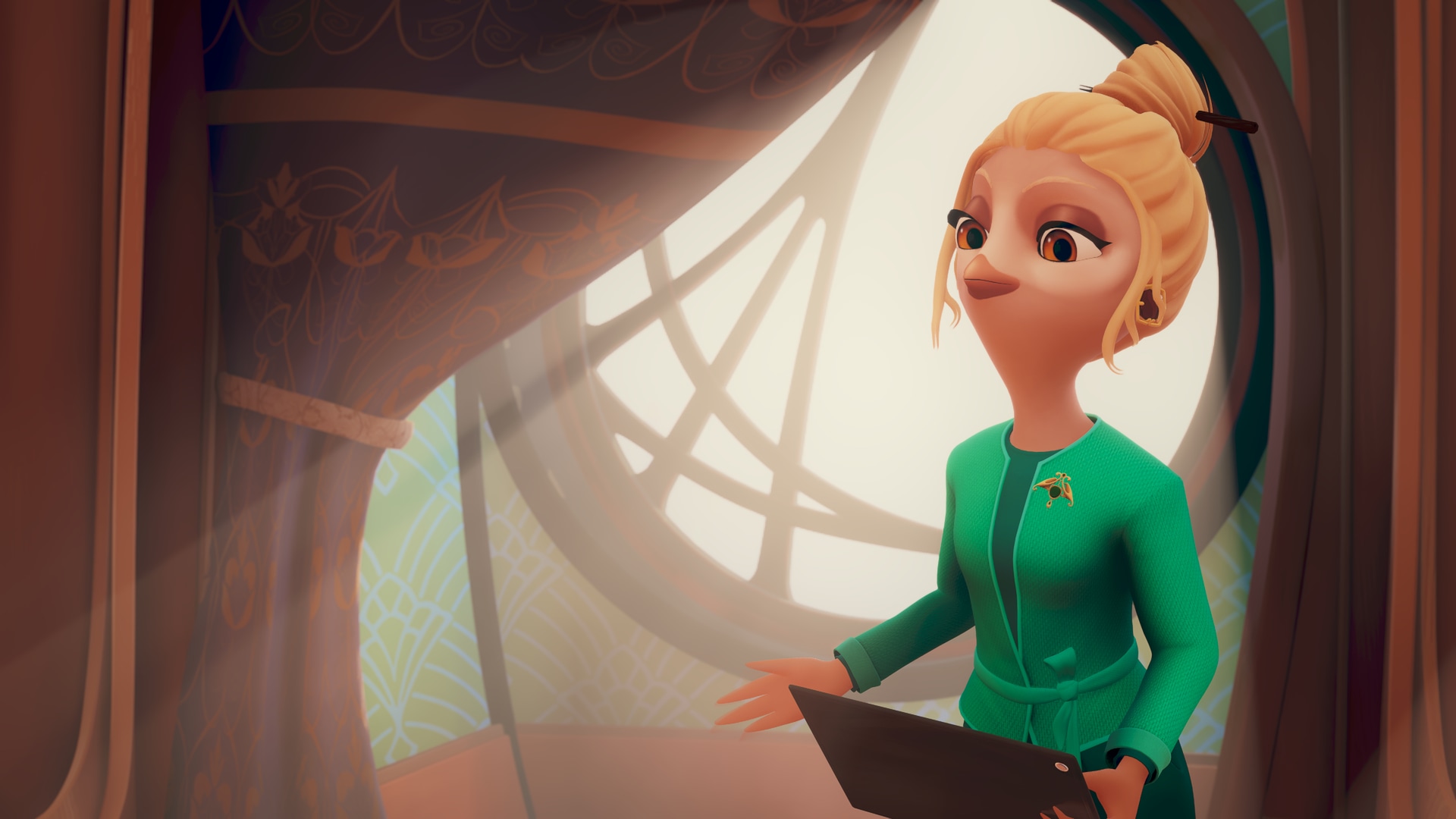
You have a lot of projects right now: the second season of the animated series The Secrets of the Honey Valley and three feature films. How do you manage to do everything?
When we have many projects, they run in parallel. There is no way around it. I sometimes wonder myself how we manage to do everything in time.
We actually have a pretty harsh management system. I often have to use fairly strict, if not cruel, process management methods. Thankfully, the people who work here are passionate about what they do. Passion is one of the most powerful motivators, which is why I personally interview specialists. I feel like we can move mountains because of our informal approach to work processes. The people here live and breathe work. So I don’t have to ask them to stay late, work on Saturday or Sunday, or rest for three days instead of two weeks during the New Year’s holidays. With people like that, you get amazing results. Sometimes I look around and wonder how we have managed to do so much in such a short period of time.
When it comes to the development of different software products, there are several project management methodologies: Waterfall, Agile, SCRUM. Do you use something similar?
In a sense, these are all managerial services. Everyone chooses one depending on their needs and preferences and what feels more natural and convenient. We use Cerebro.
Do you have to force your employees to use it or is there an element of self-discipline?
When you systematically introduce something into the pipeline, it is not optional. It is an element of the production and engineering process. I can’t go to an assembly shop and say, “I’ll use four bolts and not three to fix this wheel, and I’ll do it with a chisel instead of a wrench.” It’s the same here: we have a certain system that we use. From time to time, people suggest other programs as an alternative. But I think it’s all a matter of preference. If you’re already using a certain tool, you need to use it to the maximum. Thankfully, we can adapt Cerebro to our needs. It’s great that the company providing these services actually listens to us. They try to make the system as user-friendly and efficient as possible.
We also play our part. You can’t buy a system and go relax on the Bahamas. It doesn’t work like that. The end result depends on our feedback and our suggestions.
How do you organize your days? How do you find the time to live?
Well, this is my life. I honestly don’t understand people who separate work from life and say they’ll live to the full once they retire. That way they’ll work for fifty years, look around and realize they’ve lost their health and their life has passed. I enjoy every day of my life. I feel happy every day, regardless of the difficulties or joys, and it gives me strength and energy.
I need to somehow find the time for walks, for my family and friends, for sports, books, and movie. When do I do all that? I sleep four hours a day, and that’s enough for me. I have a certain amount of sleep I need, and this is more than enough. I feel energetic and happy. I’m good. Of course I don’t do that at the cost of my health. I wouldn’t want to hurt myself. I’ve found the rhythm in which I feel comfortable. Health is important. Some people need to get eight, nine, or ten hours of sleep, but I don’t, because it gives me three or four extra hours a day. I try to optimize my logistics. When I was actively involved in the MARS project, I lived there. I didn’t need to drive to work. And now I also live close to work, right across the street.
Is this a matter of principle for you?
Of course. And it is especially relevant in Moscow. If it takes you an hour and a half to get to work each day (and this is a common thing here), try counting how much time you spend on it per year. It’s more than 30 hours for 22 work days, or 360 hours of activity per year. This is a frighteningly huge number.
When can we expect the feature film and the second season of the animated series from you? Do you have any other interesting projects planned?
The second season will be released in April and will consist of 20 episodes, half as much as in the first season. In a year we will release the Golden Beehive feature film based on the Honey Valley, and another feature film a year after that. We have other plans as well, and I hope we will be happy with the results.


